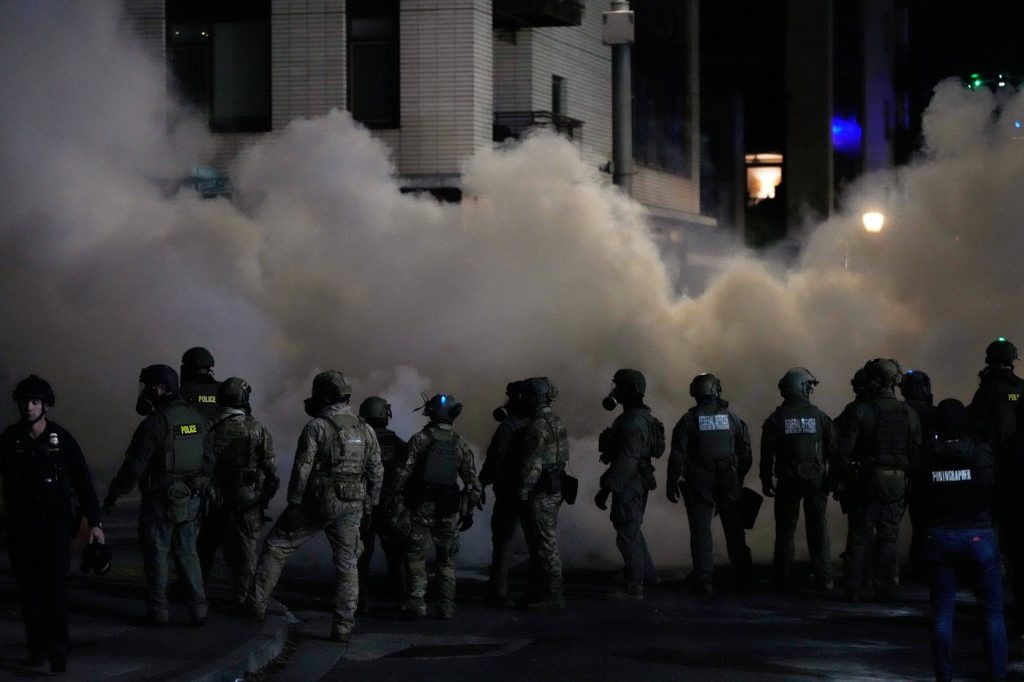A federal judge in Oregon has temporarily blocked the Trump administration from deploying the National Guard in Portland, following a lawsuit filed by the state and city. U.S. District Judge Karin Immergut issued the order, stating that the protests in the city did not warrant the involvement of federalized troops, which she deemed could endanger Oregon's state sovereignty.
Judge Immergut emphasized the importance of resisting governmental overreach, especially concerning military intervention in civil matters. She asserted, “This country has a longstanding and foundational tradition of resistance to government overreach, especially in the form of military intrusion into civil affairs,” and further added that the situation in Portland did not align with the president’s justification for deployment.
The Trump administration filed a notice of appeal in response to the ruling, after announcing plans to federalize 200 Oregon National Guard troops to safeguard federal buildings amidst what President Trump characterized as a “war-ravaged” city. Oregon officials refuted this depiction, citing that the protests at the U.S. Immigration and Customs Enforcement (ICE) building were minor and did not involve significant violence.
Judge Immergut concluded that the federal response was disproportionate to the reality on the ground, stating that prior demonstrations at the immigration building were orderly and contained. She noted that overall, the protests were small and had not escalated in violence. “The President’s determination was simply untethered to the facts,” Immergut wrote.
White House spokesperson Abigail Jackson responded to the judge's ruling, asserting that President Trump exercised lawful authority to protect federal assets in Portland. Oregon Attorney General Dan Rayfield hailed the decision as a vital check on presidential power, insisting that Portland was not the chaotic battlefield the president portrayed.
The situation in Portland reflects a broader pattern, as Trump has threatened or implemented troop deployments in various U.S. cities led by Democratic mayors, citing civil unrest. In particular, earlier this year, a federal judge ruled that the president’s deployment of nearly 4,700 National Guard soldiers and Marines in Los Angeles was illegal, although a panel allowed some troops to remain as long as they did not enforce civilian laws. The administration subsequently appealed the ruling.
The ongoing protests in Portland have largely been confined to a specific area of the city, which spans approximately 145 square miles and is home to around 636,000 residents. After the announcement of the National Guard’s federalization on September 28, the protests intensified slightly, with the Portland Police Bureau reporting minimal violent activity, intervening only when vandalism occurred.
On the day before the ruling, approximately 400 individuals marched to the ICE facility, showcasing a diverse group including families and elderly citizens. Federal agents reacted by deploying chemical crowd control munitions, including tear gas, resulting in at least six arrests. Tensions heightened when federal forces used tear gas against a crowd later that evening.
In 2020, federal agents were sent to Portland to protect federal properties amidst extensive racial justice protests which erupted following George Floyd's death in Minneapolis. The deployment drew fierce opposition from local leaders and resulted in nightly confrontations that included the use of rubber bullets and tear gas against demonstrators.
As the legal battle over the National Guard's deployment continues, the federal government's actions in Portland are scrutinized further. A report from the Department of Homeland Security indicated that while the deployment of federal officers had legal backing, many were not adequately trained for the situations they faced.
In conclusion, ongoing tensions between state and federal authorities illustrate complex dynamics of law enforcement and civil rights, sparking debates on the proper use of military forces within civilian enclaves.











